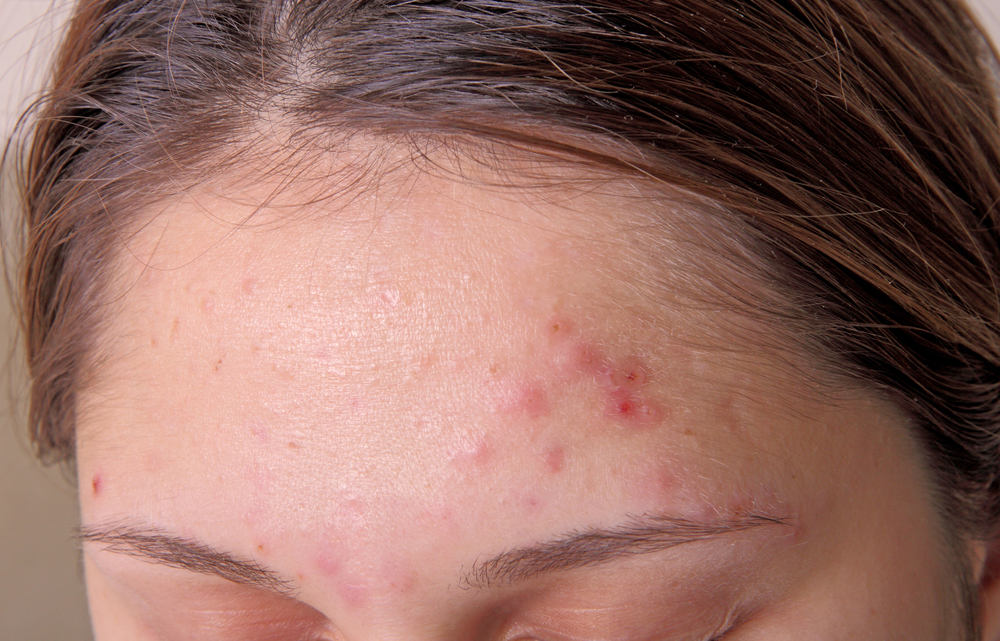- Diet can affect eczema, but is not a direct cause of eczema.
- Food allergies may exacerbate eczema in children.
- Some foods help reduce eczema symptoms.
Millions of adults and children in the United States suffer from atopic dermatitis (AD), the most common type of eczema.
The causes of eczema are hard to pinpoint, although a combination of genetic factors and external triggers are understood to cause flare-ups. These triggers cause the immune system to overreact, producing inflammation in the skin.
This inflammation in turn leads to the itchy, sensitive condition that eczema sufferers know all too well.
The link between diet and eczema is a highly debated topic among medical professionals. Here’s what we found out.
Food allergies as eczema triggers in children
Allergic reactions cause the production of specific antibodies, each of which react to a specific allergen. These antibodies release chemicals that create the symptoms of an allergy attack, including inflammation.
Eczema triggers are specific to each individual. An affected person could be sensitive to a specific type of soap, fragrance, metal, or even a type of fabric.
Other triggers include food allergies, which are quite common in children with eczema. In fact, up to 30% of children with eczema are also diagnosed with a food allergy.
“In the very young, food allergies are very common in people with atopic eczema,” confirms Spring Lake, NJ dermatologist Dr. Philip LoBuono. “As they grow older, these allergies become less and less of a problem.”
Although food allergies are generally not considered a contributing factor to adult eczema, the following foods are said to trigger allergic reactions in children who suffer from the condition.
Gluten and dairy
“The worst contributors are gluten and dairy,” says Dr. Joel Warsh, a Los Angeles-based pediatrician.
“These foods cause increased inflammation in the body, leading to a variety of related conditions including eczema and skin inflammation,” says Warsh. “The body sees the proteins in these and other foods as foreign, which can cause a whole host of issues.”
Soy
Studies have found that 30% of patients suffering from AD also show signs of soy sensitivity. While this does not mean that soy can directly cause eczema, it does suggest that there may be some correlation. Soy sensitivity is also strongly correlated with peanut allergies.
Eggs
A recent trial study found that 60% of children on a diet that excluded milk and eggs showed significant improvement in their eczema symptoms. Although 70% of children lose their allergy to eggs by age 16, some adults are also allergic to eggs.
Other notable potential allergens in children include peanuts, tree nuts, fish, and shellfish.
Foods that fight eczema
As opposed to exacerbating eczema, some foods can actually be helpful in combating the symptoms of eczema by boosting your immune system and reducing inflammation.
Probiotics
Probiotics are bacteria that either exist naturally in the human body or are very similar to types that do. These “good bacteria” play a crucial role in the digestive system, which in turn contributes to the immune system’s proper functioning.
People with eczema — especially infants — are believed to have less efficient gut flora than healthy adults. This may lead to inflammation and other symptoms of eczema.
In one study, children with eczema were given Lactobacillus sakei probiotic supplements. This led to a 31% average decrease in symptoms.
Fermented foods like sauerkraut, kimchi, and miso contain good bacteria that can help strengthen the digestive system. Live-bacteria yogurt, kombucha and kefir can also be helpful for both improving digestion and reducing eczema.
In addition to good bacteria naturally found in food, there are countless probiotic supplements available online and in most drug stores.
When probiotics are combined with prebiotics — the non-digestible carbohydrates that act as “food” for probiotics — these supplements are known as synbiotics. Look for supplements with multiple strains of bacteria, as they are more effective than single strains.
Omega-3 fatty acids
Omega-3 oil is a very popular supplement largely due to its perceived health benefits. It’s usually found in fatty fish, like tuna, mackerel, and sardines. Because these foods are often part of a healthy diet, they’re associated with lower levels of inflammation.
In earlier times, people consumed far more omega-3 fatty acids as a part of their diet than they do now. Most fatty acid consumed in the Western diet is omega-6. Some researchers argue that this could be an underlying cause of inflammation, and that omega-6 fatty acids can even lead to increased sensitivity to food allergens.
Research on fish oil and its effects on eczema is just in its infancy. A few small studies have shown promise, but major research on its effects has not yet been carried out.
However, omega-3 oil is a safe choice if taken within reasonable amounts — the FDA recommends no more than 3 grams per day of combined EPA and DHA (types of omega-3 oil), including 2 grams from supplements.
Generally, doctors will recommend adding omega-3 to the diet in food rather than supplements.
Oolong tea
Oolong tea is a partially fermented tea. A study conducted on the effects of oolong tea on eczema showed that a majority of patients — 63% — showed improvement in their symptoms over the course of a month. Many patients began to see improvement in two weeks.
Polyphenols in the tea may reduce allergic symptoms, though researchers are unsure as to exactly why the tea is so effective.
Elimination and exclusion diets
Elimination and exclusion diets have become a popular way to self-treat eczema. A quick internet search for “foods that cause eczema” will produce countless results, many of which make contradictory claims.
Certain wellness experts believe that you can discover previously unknown sensitivities by eliminating certain foods from your diet over a set period of time, while methodically tracking the improvement of eczema and allergy symptoms in a journal.
However, many researchers feel that there are major flaws to this approach. First, there is little conclusive evidence suggesting that food plays a role in adult eczema flare-ups. As such, the practice may lead to false-positive identification of certain foods as culprits.
Second, when attempting to self-diagnose children, one must remember that food-related eczema flare-ups can occur anywhere from minutes to days later, making it difficult to accurately identify the root causes.
Generally speaking, exclusion diets appear to be ineffective unless you have a diagnosed food allergy. It is also important to note that placing children on an exclusion diet can lead to adverse effects, including poor nutrition and stunted growth.
Furthermore, an exclusion diet in children can result in the development of strong, immediate allergic reactions if the food is reintroduced later on.
If you’re considering an elimination diet for your child, make sure to speak to a medical professional first.
A controversial science
The links between eczema and diet are still being studied. However, we do know that diet can play an important role in managing eczema.
If your child shows signs of food allergies, avoiding those foods may help prevent eczema flare-ups. Eating certain foods can also help boost the immune system and reduce inflammation.
» Speak with a dermatologist for advice on treating eczema and preventing flare-ups. Meet our medical review team to get answers to all your preliminary questions.









